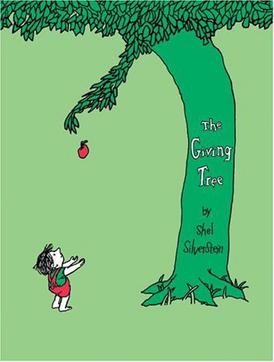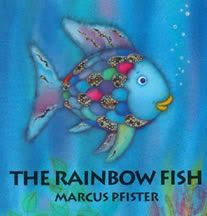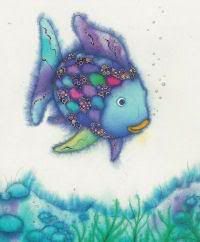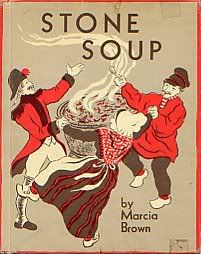Summer is upon us and that means that we have two things coming up: holidays and above all graduation. I have been rather busy preparing my 6th graders' goodbye activities and gifts, but I don't want to spoil the surprise, so I haven't posted anything. As things are coming to an end I will start posting the Power Points and Flipbooks I have prepared for them. For now I am sharing the two latest Power Points I made for two of my students. They are based on Kipling's poem If. I hope you like them.
Saturday, 12 May 2012
Poetry Club: New Poem Videos
Labels:
Book Club,
Level: Advanced,
Poetry,
Poetry Videos,
Powerpoint,
Teachnology
Friday, 4 May 2012
Poetry Club: Using Original Poems to Teach Grammar
- When I was a teenager, I came across a poem that changed the way I perceived the world. It was a long poem with a one word title: IF, written by R. Kipling. I strongly believe that we have to use authentic materials when teaching, but this kind of materials is difficult to come by. Most of the poems, articles or books are too difficult or inappropriate for young learners, or they don't contain enough of the target structure. This is why I was so happy when I realised that If, the poem in question, is one long, well structured, neat conditional.
- My 6th Graders dug their teeth into the poem and with great effort they constructed their own If poems. These poems, and more, constitute The Second Poetry Collection by the Living Poets Society. What follows is a sample of their work.
If
If you are always a friend of justice and never betray it,
If you stand up for an innocent man,
Even when it is almost sure that he is doomed,
If you help a man even if he doesn’t deserve any help,
You’ll be more than a man,
You’ll be a good man.
Kostis G.
|
If
If you can have friends that are true
If you can open your heart to everyone
that needs and loves you
If you can always be yourself
If you can do things and don’t mind what
others say
You’ll be a man my son.
Dioni M.
|
If
If you are not afraid to try something new.
If you learn to fight for the fair
If you don’t give up in difficult moments
If don’t care only for yourself
Or you learn to appreciate what you have
Your life will blossom
Kilo M.
|
If
If you go to Sahara without a map,
If you climb Everest without a rope
If you swim with Sharks
If you see thrillers and you laugh
Then don’t be sure you are really brave
When you are alone without help.
Irene M.
|
If
If you are always
a friend of Justice
And you never
betray it
If you stand up
for an innocent man
Even when it is almost sure that he is doomed,
If you help a man
Even if he
doesn’t deserve any help
You will be more
than a man,
You’ll be a good
man.
Kostis G.
|
If
If you can watch a movie again and again
And keep laughing at the same thing
If you can control your mood
If you can feel it’s already summer when you hear music
If you can imagine that book continuing
If you can make your anxiety go away just by singing
Then you know how to have fun.
Zoe K.
|
If
If
you can be there for your friend in hard times,
If you can be yourself all the time with
him,
If you can support his decisions,
If you can share, laugh and argue in the
same time,
If you can accept his difference,
Then you can call yourself a true friend.
Ariadne V.
|
If
If you can always tell the truth,
If you can stay calm when other people
hurt your feelings,
If you can face any situation without
running away,
If you don’t give up
And try hard,
You’re a man.
Aris
|
If
If you smile often,
If you turn on the oven,
If you bake it to golden,
If you let it all shine even,
If you don’t make it alright the first time,
If you try with soul and mind,
Then, you’ll be a real poet.
Electra
|
If
If you can be true to people,
If you stand by your friends,
If you say the truth, even if it’s hard,
If you forgive even when you’re wounded,
If you try to love someone, even if you
hate him,
You’ll be a Man, my son.
Marina
|
More Poetry
- Poetry Club :Grammar Focus: 1st and 2nd Conditional
Wednesday, 25 April 2012
Thought CD, Music as a Teacher
Thought CD Volume 1
Many years ago I ran into a jazz compilation CD as I was reading a Sunday newspaper. It was short, sweet and exactly what I needed. I decided to use it in one of my classes as a management tool. The rules were that I would play the CD while the children were doing their work, as long as I could hear the songs. That's why they had to use their quiet voices to talk to each other in pair work. The children loved the music, which was soothing and helped them settle down to work. The compilation has grown since then, sometimes to incorporate songs that my students love.
What follows is the original Thought CD compilation. I hope you like it as much as we do.
1. La vie en rose. Louis Armstrong
2. Feeling Good. Nina Simone
3. I wish I knew how it would feel to be free. Nina Simone
4. All of you. Miles Davis
5. Take Five. Dave Brubeck
6. Summertime. Miles Davis
7. My Baby Just Cares For Me. Nina Simone
Have a look:
Music can help your children learn and remember vocabulary:
Vocabulary that Sticks.
Teaching through Music.
2. Feeling Good. Nina Simone
3. I wish I knew how it would feel to be free. Nina Simone
4. All of you. Miles Davis
5. Take Five. Dave Brubeck
6. Summertime. Miles Davis
7. My Baby Just Cares For Me. Nina Simone
Have a look:
Music can help your children learn and remember vocabulary:
Vocabulary that Sticks.
Teaching through Music.
Labels:
Level: Advanced,
Level: Beginner,
Study Skills
Tuesday, 24 April 2012
Vocabulary that Sticks.
- As a child I used to have great difficulty in remembering the meaning of new words in English and most of all their spelling. Back then our teachers made us copy endless lists of vocabulary over and over again, which was boring and many times ineffective. I don't underestimate the use of word lists, which I think are important for organising new knowledge and making it easy for children to look new words up. However nowadays teachers and parents have many tools to help children internalise vocabulary in a fun way.
- First of all we have to understand how people learn new words. We seem to understand and remember new words, when we encounter them in context. If there is one thing that linguists agree upon, is that words appearing in isolation are difficult to comprehend and remember. Another thing linguists consider important, is input and its quality and quantity. In other words we have to expose our learners to plentiful and meaningful input. Krashen for instance in his Input Hypothesis argues that we learn through interpreting messages, we acquire vocabulary unconsciously, while we are trying to understand. This is why I strongly believe that direct translation of new words doesn't help children remember them better.
- Another thing that we have to bear in mind is that there are stages in our vocabulary learning. Just because we saw a word, even in context and someone told us what it means and asked us to copy it a few times, doesn't mean that we are going to remember it and be able to use it. We have to be exposed several times to a word in order to begin to recognise it at first without remembering the meaning. Gradually, we then begin to recognise it and understand its usage within contexts, without being able to properly reproduce it. Using new words properly is the final stage of our learning process. Just because we might know a word that doesn't mean we can also use it. (See Chomsky's theory on linguistic competence and performance.) We teachers are sometimes so eager to verify that what we taught was learnt, that we sometimes forget to allow our students the necessary time to process new words. As Barcroft (2004) maintains there are five major principles in vocabulary acquisition: Firstly, we have to expose our learners to new words frequently and repeatedly. Secondly, we have to present new words in a meaningful way. The third principle he outlines is the most neglected. He argues that there shouldn't be any forced output in the beginning stages of learning new words. Fourthly, we have to limit forced semantic elaboration of the new input and finally there should be a progress from less difficult to more difficult vocabulary.
- So the difficult question is how do we incorporate all this in our teaching of new words?
- PATIENCE
To begin with, we have to be patient with our students, and give them the time they need to process new information.
- LITERATURE
Expose your students to as much authentic language as you can. Sometimes parents ask me how this is made possible in everyday life and my answer is always the same: Give your children books to read. Reading is the best source of new language, given in an authentic way that means something to our students. Use books in your lessons, make a class library for your students, provide audio books that they can listen to while reading the book, make lap books for their favourite books, ask them to present books in class, or organise a reading marathon. The possibilities are endless.
- MUSIC
Music is a great teacher. Use songs in your classroom, either as background or to introduce and practise new language. In my first year as a teacher I came across a jazz compilation CD in a newspaper that I have been using in class ever since. We call it the Thought CD. The moment the music is on the children know that it is practice time. They know they have to use their quiet voices and they get down to work. I was amazed this year when I saw some of my fourth graders working away while whispering Nina Simone's Feeling Good. Another fun way to use music is through Music Journals.
- TECHNOLOGY
Nowadays there are hundreds of websites and applications that we can use to teach vocabulary. Some of them require time and money that we might not have in class, but our students can use them at home with parental consent. In class we can use them to present new vocabulary, revise or just have fun.
A word cloud generator. I simply love it. Use it in class to present new words or ask your students in groups to each make a word cloud. We have to teach vocabulary in thematic units so this is perfect for grouping vocabulary. Ask the students to brainstorm all the words they know in a thematic unit, then to make a word cloud using the words they came up with. Excellent way to decorate your class, too.
 |
| JOBS word cloud |
Amazing vocabulary site. As a teacher you can create word lists for your students, each student is given a password through which they can access the lists. Children hear and write the new words. As a parent you can use this for re- enforcement.
c. Literactive
The road to reading. Literactive is a FREE interactive online programme for beginner readers that I advise my students to use at home. It is easy to use, you just have to register, and the children love it. It offers letter recognition games and activities, as well as nursery rhymes in 5 difficulty levels, poems and spelling games. I have found Literactive useful and effective.
ORGANISATION
Organising new knowledge is one of the most challenging and difficult tasks for students. We ,both parents and teachers, have to help our children develop an autonomous way of organising, mapping and storing new words. Once again Study Skills are in the centre of this process.
a. Provide students with a simple, comprehensible way to store their new words. With younger students this can be a word- picture dictionary, or Word Class Books. Make sure you are consistent. Choose one chore method of storing new words and studying them, so the students start developing confidence, method in their work and autonomy form an early age. I find it very important to aim at picture-word association and NOT direct translation of the word. At this stage we should focus on visual and auditory recognition of words and NOT correct production.
 |
| Word-picture dictionary |
 |
| Class Book: What is Blue? |
- I found a very simple and comprehensive mind map in the blog that follows: http://maykhoocuhk.wordpress.com/2011/01/26/vocabulary-mind-maps-and-games/
c. Word Walls are also a great way to revise new words. You just need visiting cards that are cheap and easy to find. Ask the children to write the English word on one side and put the words up somewhere they can see them at all times. When revision time comes take them down and play games with them. You can play Memory, Green word - Red word or Pantomime.
d. Vocabulary Journals can be time consuming but worth the while. I have been keeping a vocabulary journal for the books I read since I was in primary school. It helps children memorise and retain information and gives them a sense of progress and accomplishment.
These are only a sample of what we can do to help our children and students retain information. All we need is imagination and will to help them in their difficult task. The sites and applications that I presented above are a few from a long list on the Internet. I find them useful, but one may find others very similar online. The above mentions to specific sites are not advertisements, only examples.
You might also like:
 |
| From Word To Sentence Level |
Labels:
Games,
Level: Advanced,
Level: Beginner,
Literacy,
Our Class Books,
Poetry,
Study Skills,
Teachnology
Tuesday, 10 April 2012
Teachnology 2: Present Perfect Simple
This is the second presentation that I have made using Prezi.
Labels:
Level: Advanced,
Present Perfect,
Teachnology
Book Club: Teaching about Teamwork and Sharing
- A class is a team and if doesn't work like one, then you don't get results. One of the most difficult things is to make young learners feel safe enough to open up and feel part of a class. It takes time and effort to persuade children to trust you and their classmates and bond in a team. We have to help them by building a strong, non-threatening small community in which they can belong, be themselves, feel comfortable to share and above all care for one another. Through this process they develop social skills, such as co-operation and standing up for themselves without being hostile or violent. They learn to express themselves in order to be understood, they form bonds and friendships that can last a life time.
- I teach English in a Greek primary school, so I don't get to see my students every day. I teach almost 80 children from 2nd to 6th grade. It can sometimes be hard to build a sense of community. My classes are small in number, but they might include children from different classes, so teamwork and bonding as a group are essential. Once again, us teachers, can turn to children literature for help. I have found that childrens' books make a difference especially when it comes to young learners. Books will always help get the message across in an implicit way. I have gathered three of the books that I have been using in class over the years and the children love them. I hope you find them as meaningful and useful as I have.
1. The Giving Tree by Shel Silverstein
(Low resolution photo from Wikipedia, used only to illustrate an article discussing the book in question, so the reader forms a complete understanding of the subject.)
- A couple of years ago I had the opportunity to co-teach a class with a colleague I have come to love and admire. Tanja brought in to class what has become one of my favourite books: The Giving Tree by Shel Silverstein. The class we taught together was already a caring and sharing team, however by reading this book to them, she opened new doors of communication. Every year I enjoy reading this book with my students. What follows is a compilation of videos and activities that one can use either in the classroom or at home with their child.
- In this book Shel Silvestein, one of my favourite children authors, demonstrates in the simplest way the importance of giving and sharing without waiting anything in return. Once again I am going to urge you to visit the official Shel Silvestein website for more materials and information.
- You might also want to have a look at the original 1973 short film narrated by Shel Silverstein himself.
- Another great YouTube video of the book. Wonderful animation.
- You might also want to have a look at the following site for more information on how to teach "The Giving Tree".
2. The Rainbow Fish by Marcus Pfister.
(Photo from Photobucket.com)
- Another brilliant story about belonging and sharing within a group. The most beautiful fish in the sea feels lonely and secluded until it discovers the essence of giving to the team.
(Photo from Photobucket.com)
- I found a wonderful video of the book made by students that you might want to check out.
- Momitforward.com offers a list of related activities and crafts you can use at home or in class. Have a look at the following link:
3. The Stone Soup by Marcia Brown.
(Photo from Photobucket.com)
- This folk tale demonstrates the importance of community sharing to make it through difficult times. People can do anything as long as they stick together and support each other.
- Also check out the YouTube Video:
Subscribe to:
Posts (Atom)
.jpg)




 I
I